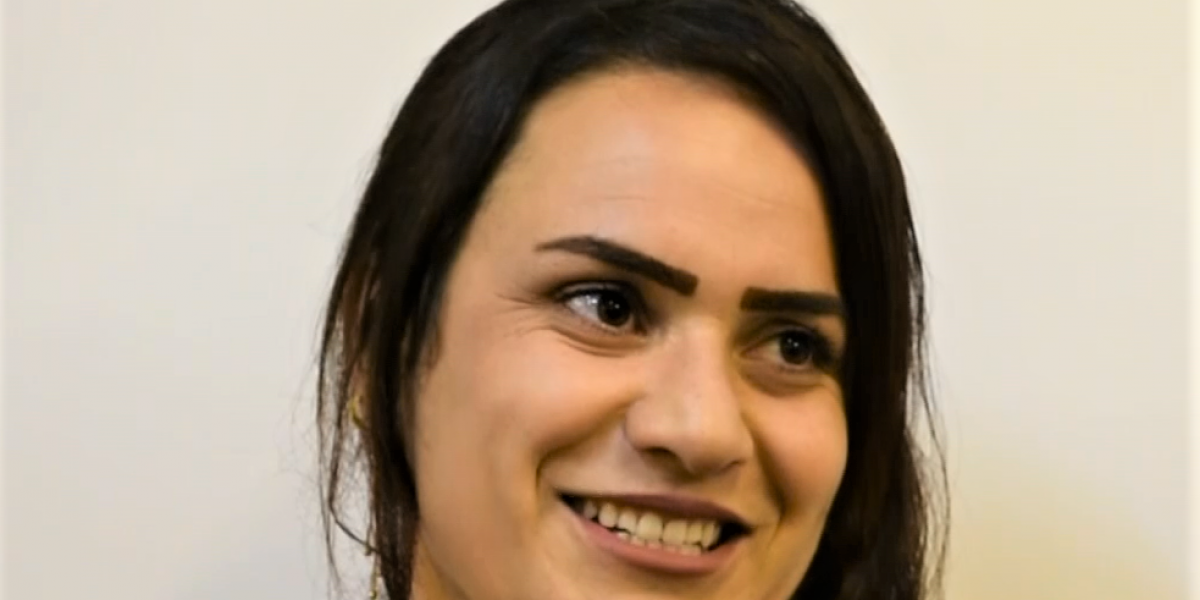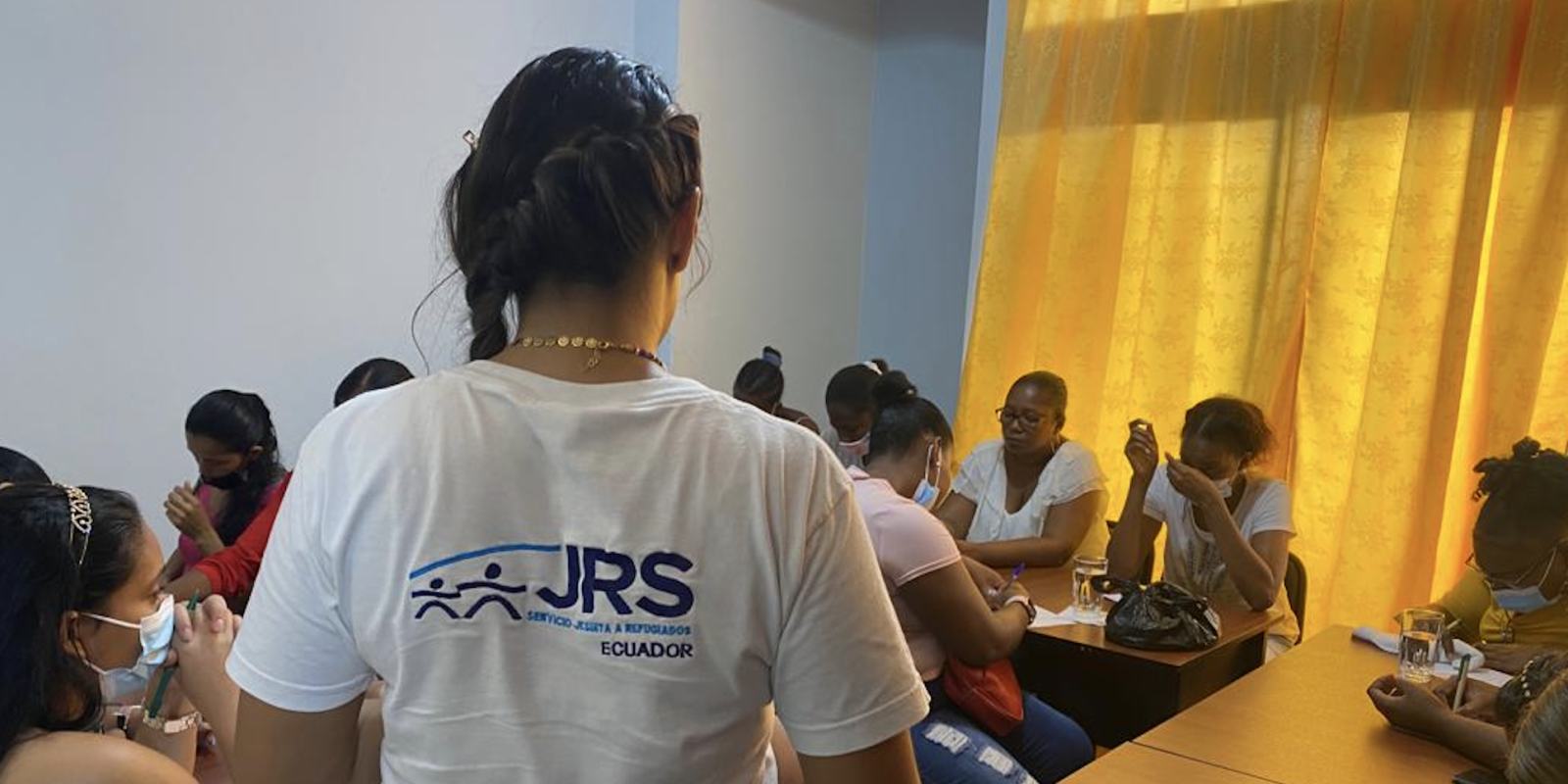Iraq: I Am Not Alone
16 March 2020

Basima was devastated when her father was abducted and by the destruction and genocide of her community. In 2014, more than 5,000 Yazidi people were killed and an estimated 10,000 abducted or injured, including Basima’s father, by the Islamic State. She felt great loss, and needed space to grieve and to heal, but could not find it. Basima’s life has not been the same since. She internalized her pain and suffered in silence as she strived to move forward with her life. Basima realized her mental health was gravely being affected by her father’s death, and she decided that a change had to be made.
When JRS opened the Sharya Community Center in Iraq, the psychosocial home visit team reached out to her family to offer their assistance. Within the first year of attending, Basima began meeting with the psychologist and enrolled in sewing courses at the JRS Center. Not only did she learn a new craft, but she met new friends and found some relief. Several other men and women like Basima visit the Community Center to learn cosmetology, confectionary, English, and other livelihoods skills. Basima continues to encourage others to attend the JRS Sharya Community Center to utilize the psychological services and classes offered to improve their mental health.
One of our projects Jesuit Refugee Service Community Centre in Iraq currently offers Adult Education and Skills Training courses in English, computer proficiency, literacy, barbering, confectionery, hairdressing, and sewing. 635 women and men have successfully completed their skills courses. Most of the participants had survived the Yazidi genocide in Sinjar of August 2014 and are now in their sixth year of displacement in the Duhok governorate of Iraq. Each participant undergoes three cycles of three-month long courses, each with a duration of 72 hours. Those who successfully complete one of the courses receive a certificate and are applicable to receive a business start-up kit with materials such as, electric sewing machines, a food mixers, or a set of hairdressing tools.
Psychosocial programs provided by JRS aim to strengthen community and family supports through emphasis placed on building hope, restoring human dignity, and strengthening social cohesion. A cornerstone of the JRS mission is to offer holistic human services through companionship, warmth, and recognition of human dignity. Through this mission and JRS’s lens of accompaniment, we provide psychosocial support to those in need. Learn more about our pastoral care and psychosocial support https://www.jrsusa.org/program/pastoral-care-and-psychosocial-support/



